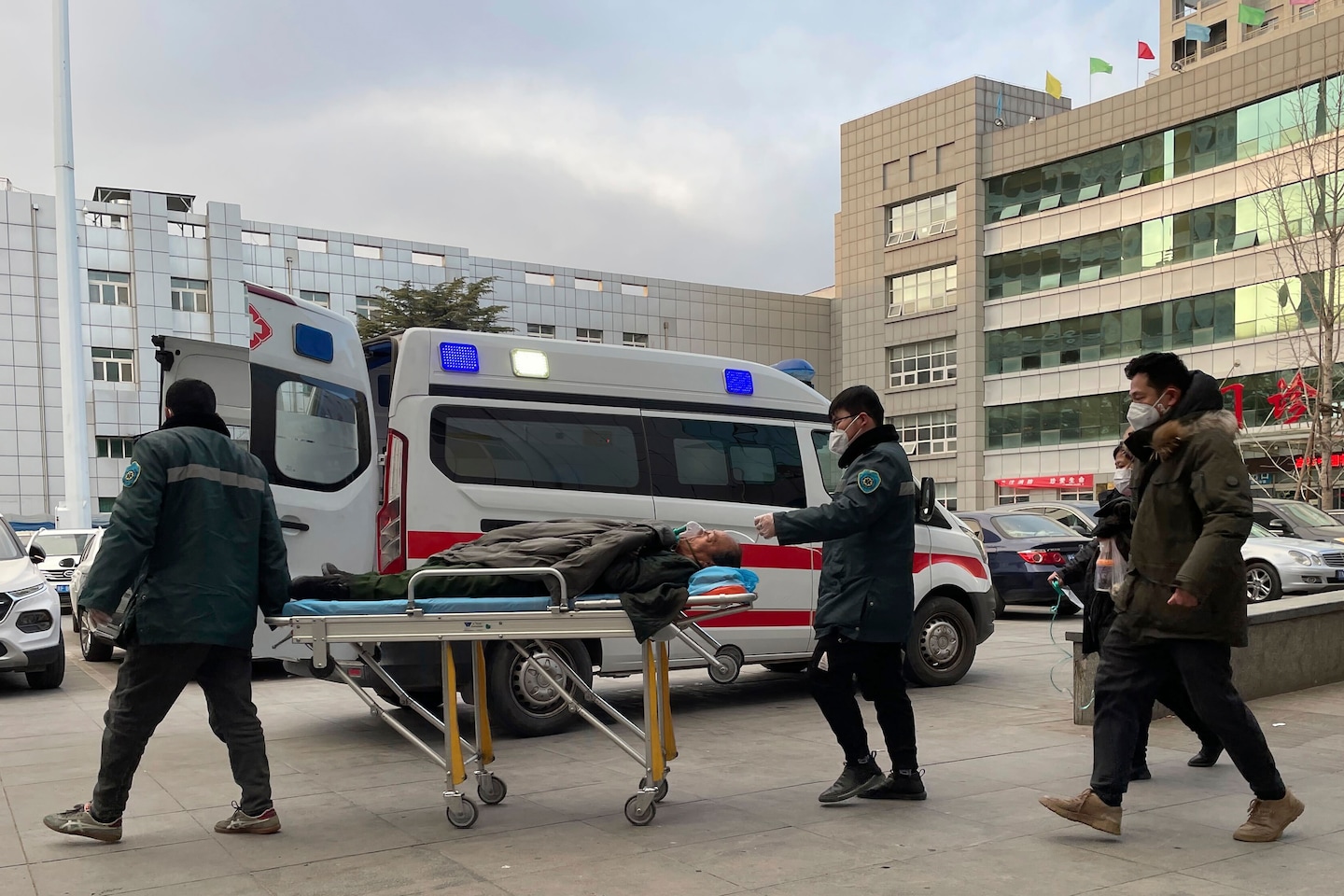Experts from the organization suggested that the lack of data from China may suggest that systems have been overwhelmed, but also noted that the way Beijing recorded deaths from covid-19 may minimize the scale of the outbreak.
“Limiting your diagnosis of ‘death from covid’ to someone with a covid-positive test and respiratory failure will very much underestimate the true death toll associated with covid,” said Mike Ryan, head of the WHO’s Health Emergencies Program.
“We don’t want the definitions to get in the way of actually getting the right data,” Ryan added.
After protests that took aim at years of strict “zero covid” policies, China loosened its restrictions. China, the initial epicenter of the global coronavirus outbreak, had largely kept the virus at bay after the initial wave by imposing stringent lockdowns and centralized quarantines, but those measures failed late this year amid the omicron variant’s rapid spread.
China’s 1.4 billion population is considered vulnerable to an outbreak because of limited exposure over recent years and limited vaccination rates, especially among the elderly. Some outside experts have predicted that the death toll could reach more than 1 million.
On Wednesday, China released data that suggested there had been 5,241 deaths — a figure lower by one from the day before — without explanation. But on social media in the country, many have criticized the figures as implausible.
Without an official explanation, experts have had to rely on other sources to gauge the impact. The Washington Post recently spoke to a receptionist at a funeral parlor in Beijing who said all eight of its cremators are operating round-the-clock with a five- to six-day waiting list. The receptionist spoke on the condition of anonymity because of the sensitivity around talking to foreign media about covid deaths.
The local news outlet Caixin reported in early December that China had raised the standards for what counted as a covid death, with rulings made at hospitals within 24 hours. The directive, made by the State Council, China’s cabinet, said that for an individual to officially have covid, they would have to be experiencing severe hypoxemia, or an arterial oxygen saturation level below 93 percent, a definition associated with respiratory failure.
Outside experts have criticized the definition. Meaghan Kall, an epidemiologist at Britain’s Health Security Agency, wrote Wednesday on Twitter that the definition was “the strictest I’d seen” and a “red flag” for international comparisons.
Speaking in Geneva, the WHO’s Ryan noted that “people who die of covid die of many different systems failures given the severity of the infection,” not just respiratory failure.
Officials from the organization, the world’s top global health body, said they were aware of anecdotal reports that intensive care units were filling up in a way that was not shown in official statistics.
“I wouldn’t like to say that China [is] actively not telling us what is going on. I think they are behind the curve in what’s actually happening, as everyone is in a situation like this, and we need to get better ways of getting that data quickly,” Ryan said.
“We compile multiple sources of data,” said Maria Van Kerkhove, a WHO epidemiologist who was tracking covid-19 cases in China, adding that the organization’s team in the office was talking not only to Chinese officials but also clinical networks and others in the health-care world.
Although the WHO praised Beijing’s handling of covid-19 in the early days of the outbreak in 2020, relations between the Geneva-based organization and Chinese officials soon soured as Tedros pushed for a thorough investigation into the origins of covid-19 and criticized the zero-covid approach.
“Gaps in our understanding of how this pandemic began compromise our ability to prevent future pandemics,” Tedros said Wednesday, referring to covid-19’s origins in Wuhan.
“We continue to call on China to share the data and conduct the studies we have requested, and which we continue to request,” he continued.



